Class 10 Exam > Class 10 Notes > English Grammar Basic > Phrases & Idioms
Phrases & Idioms | English Grammar Basic - Class 10 PDF Download
| Table of contents |

|
| What Do You Mean by Idioms and Phrases? |

|
| Idioms and Phrases: Meanings |

|
| Differences between Idioms and Phrases |

|
| Examples of Idioms and Phrases |

|
What Do You Mean by Idioms and Phrases?
- Idioms and phrases hold significant value based on their usage in sentences. Idioms can be seen as a subset of phrases, as any phrase with a symbolic meaning can be considered an idiom.
- Phrases are groups of words that, while not forming complete sentences, convey a literal meaning. This means that the meaning of a phrase is clear and direct, derived from the words themselves.
- In contrast, idioms are groups of words whose meaning is different from the literal interpretation. Idioms convey a metaphorical or symbolic meaning.
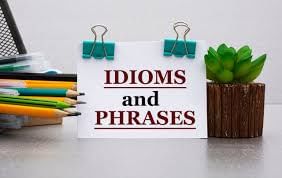
Idioms and Phrases: Meanings
- In expressive writing and comprehension, mastering idiomatic expressions is crucial in any language. For instance:
- "At a loose end" means being unoccupied or idle.
- "Built castles in the air" refers to daydreaming or making visionary schemes.
- This highlights the importance of understanding the difference between idioms and phrases, complete with meanings and examples.
- Idiomatic expressions come in various forms, such as phrasal verbs, noun phrases, idiomatic adjectives, pairs of nouns, adjectives and adverbs, and idioms and phrases.
- Phrases are groups of words that can be understood but do not have a clear, unified meaning. They convey the literal meaning of the words they comprise.
- Idioms, on the other hand, are common expressions whose meanings differ from their literal interpretations. Idioms are understood because of their widespread use in spoken language.
Question for Phrases & IdiomsTry yourself: Which of the following best describes the difference between idioms and phrases?View Solution
Differences between Idioms and Phrases
The main difference between idioms and phrases lies in understanding their meanings:
- Idioms make sense on their own, whereas phrases make sense when incorporated into a sentence.
- Idioms are commonly used as slang or part of spoken language, while phrases are used in regular sentences.
- For idioms, we interpret their symbolic meaning, while for phrases, we take their literal meaning.
- An idiom can be a single word, but phrases are generally not single words.
- An idiom can be a phrase; if a phrase has a metaphorical meaning, it is considered an idiom.
Examples of Idioms and Phrases
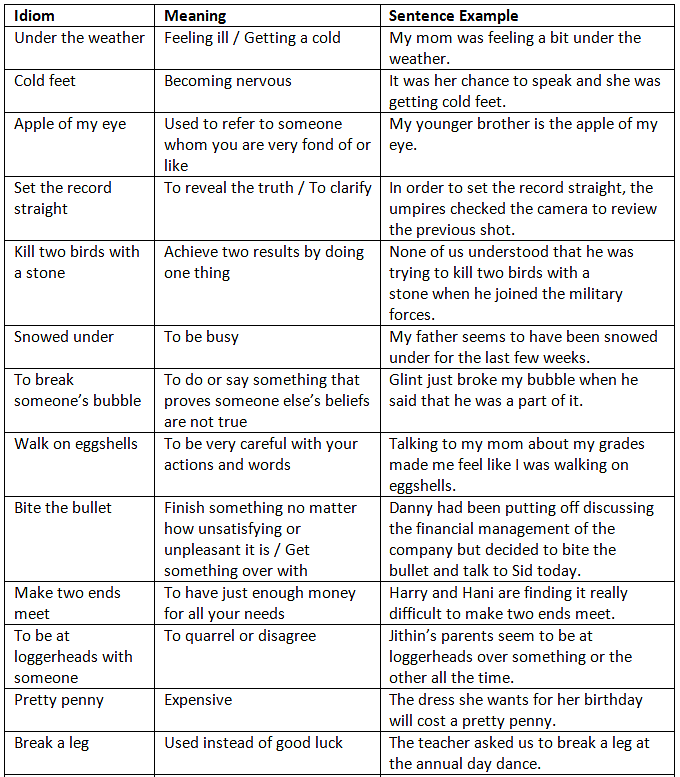
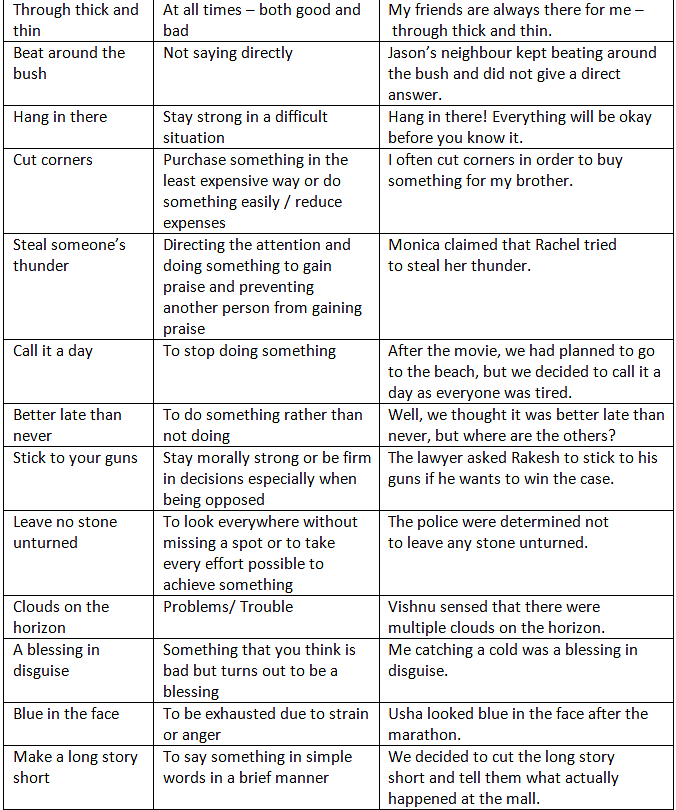
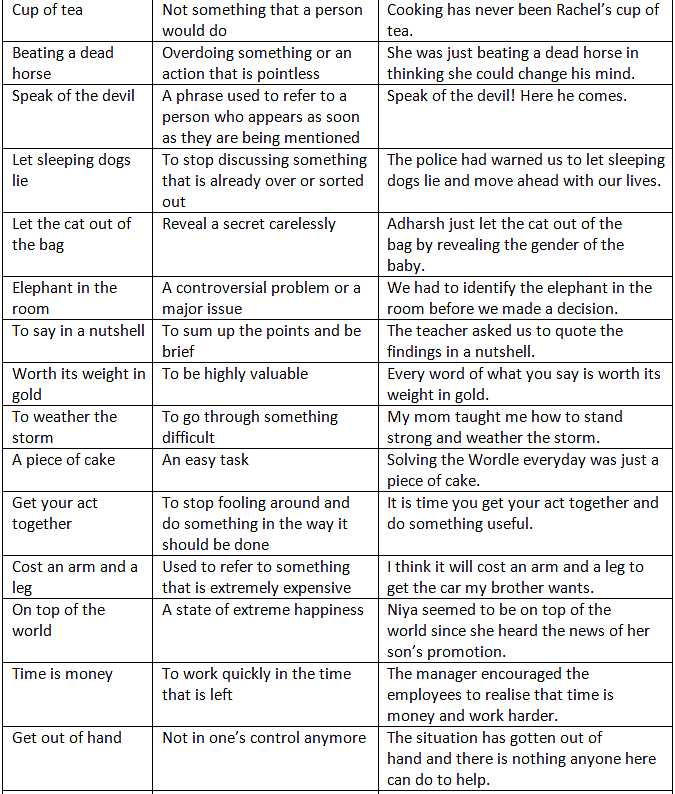
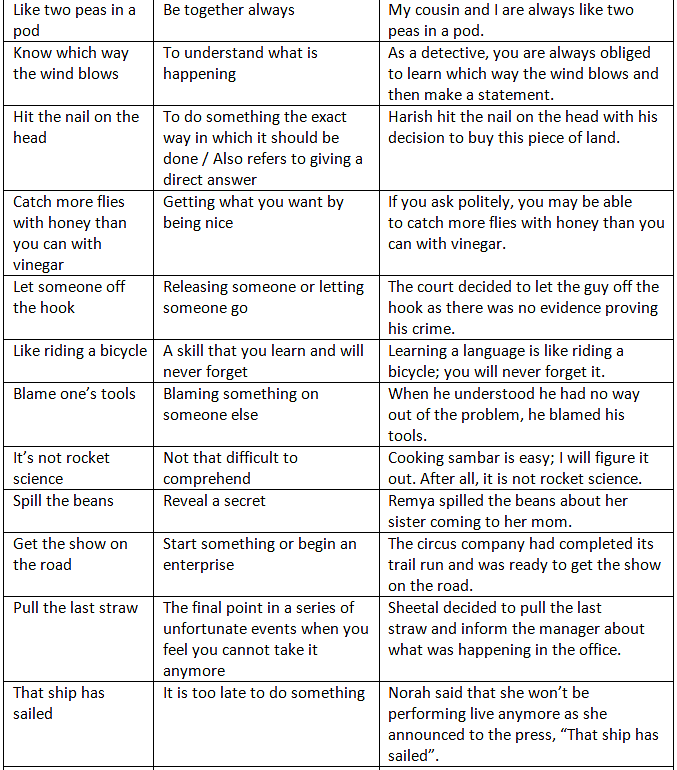
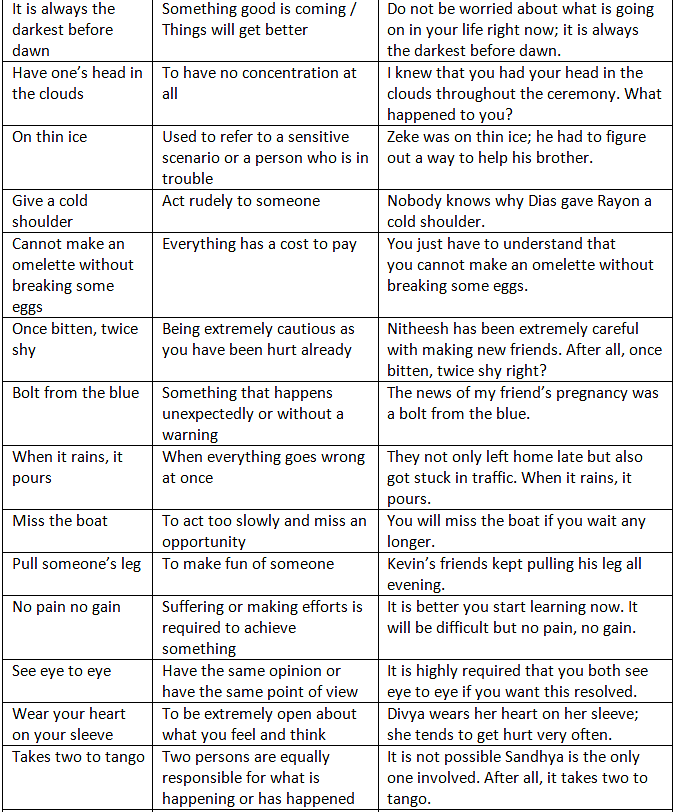
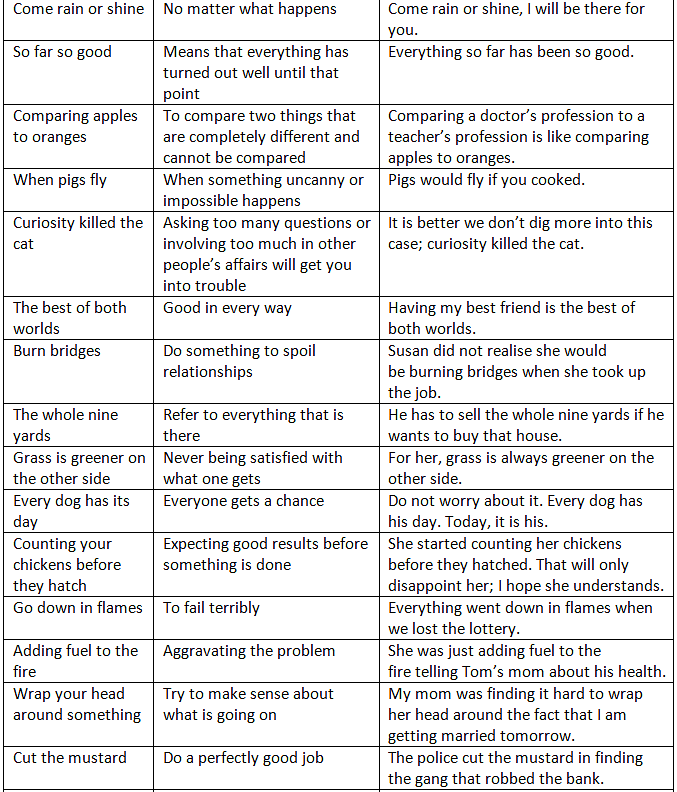
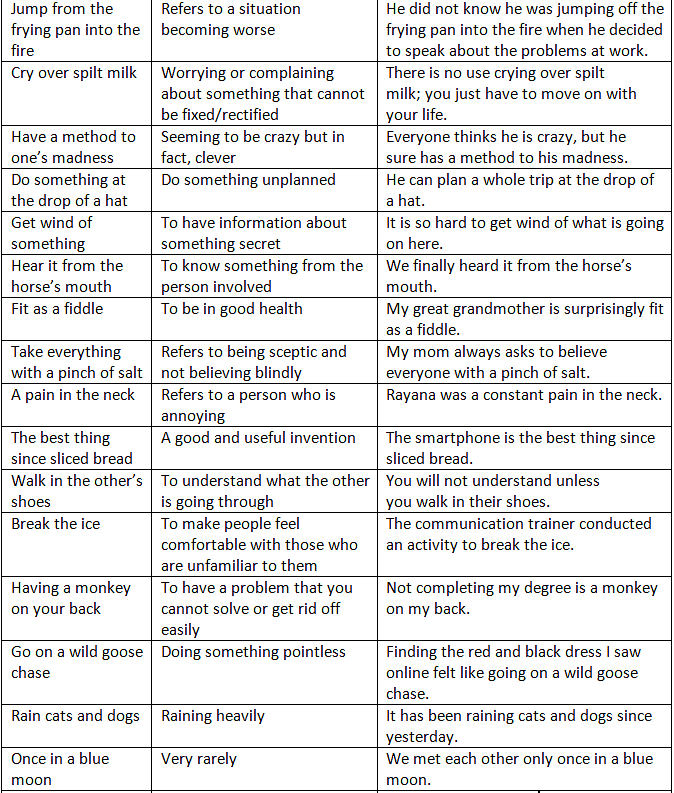
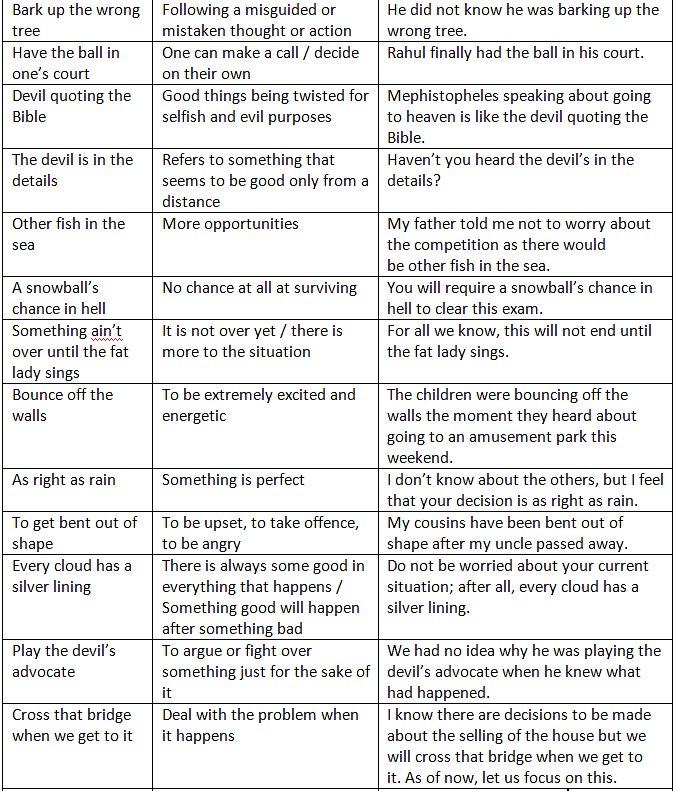
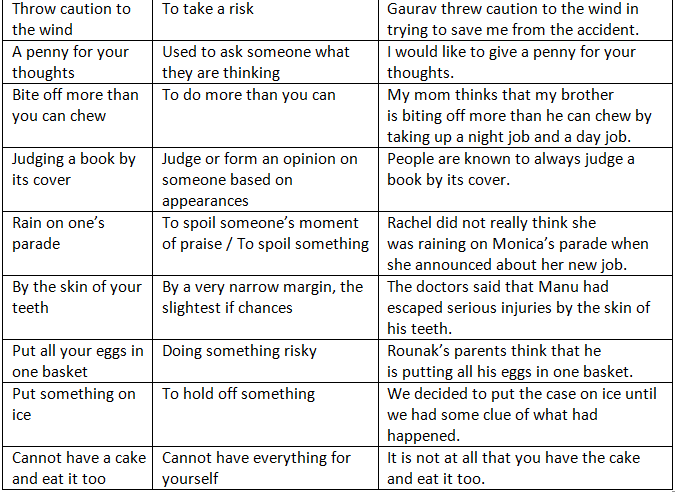
The document Phrases & Idioms | English Grammar Basic - Class 10 is a part of the Class 10 Course English Grammar Basic.
All you need of Class 10 at this link: Class 10
|
20 videos|143 docs|18 tests
|
FAQs on Phrases & Idioms - English Grammar Basic - Class 10
| 1. What is the difference between idioms and phrases? |  |
Ans. Idioms are expressions whose meanings are not predictable from the usual meanings of their individual words, while phrases are a group of words that function as a single unit in a sentence.
| 2. Can you provide some examples of idioms and phrases? |  |
Ans. Examples of idioms include "kick the bucket" and "barking up the wrong tree," while examples of phrases include "break the ice" and "spill the beans."
| 3. How are idioms and phrases useful in language? |  |
Ans. Idioms and phrases add color and depth to language, making it more expressive and engaging. They can also help convey complex ideas in a concise and memorable way.
| 4. Why is it important to understand idioms and phrases in language learning? |  |
Ans. Understanding idioms and phrases is crucial in language learning as they are commonly used in everyday communication. Being familiar with them can help learners better comprehend native speakers and effectively express themselves.
| 5. How can one improve their knowledge and usage of idioms and phrases? |  |
Ans. One can improve their knowledge and usage of idioms and phrases by reading extensively, listening to native speakers, and practicing using them in conversations and writing. Additionally, there are various resources available online that provide lists of common idioms and phrases with explanations of their meanings.
Related Searches





















